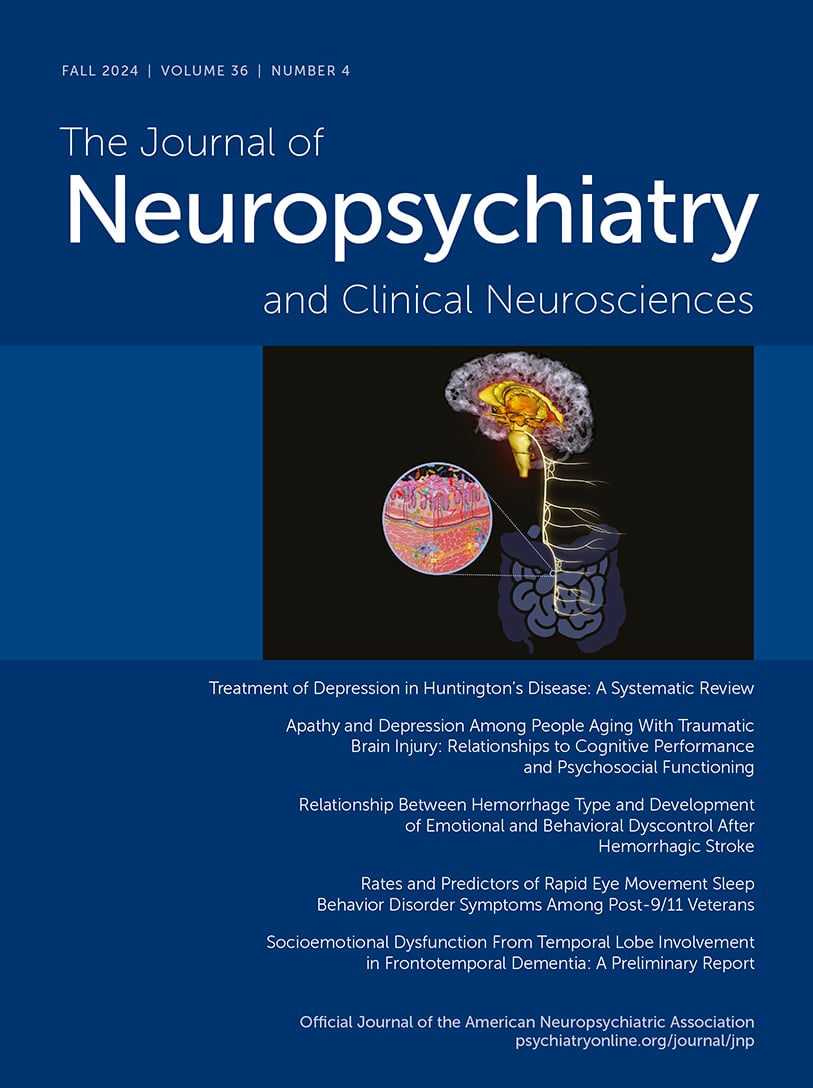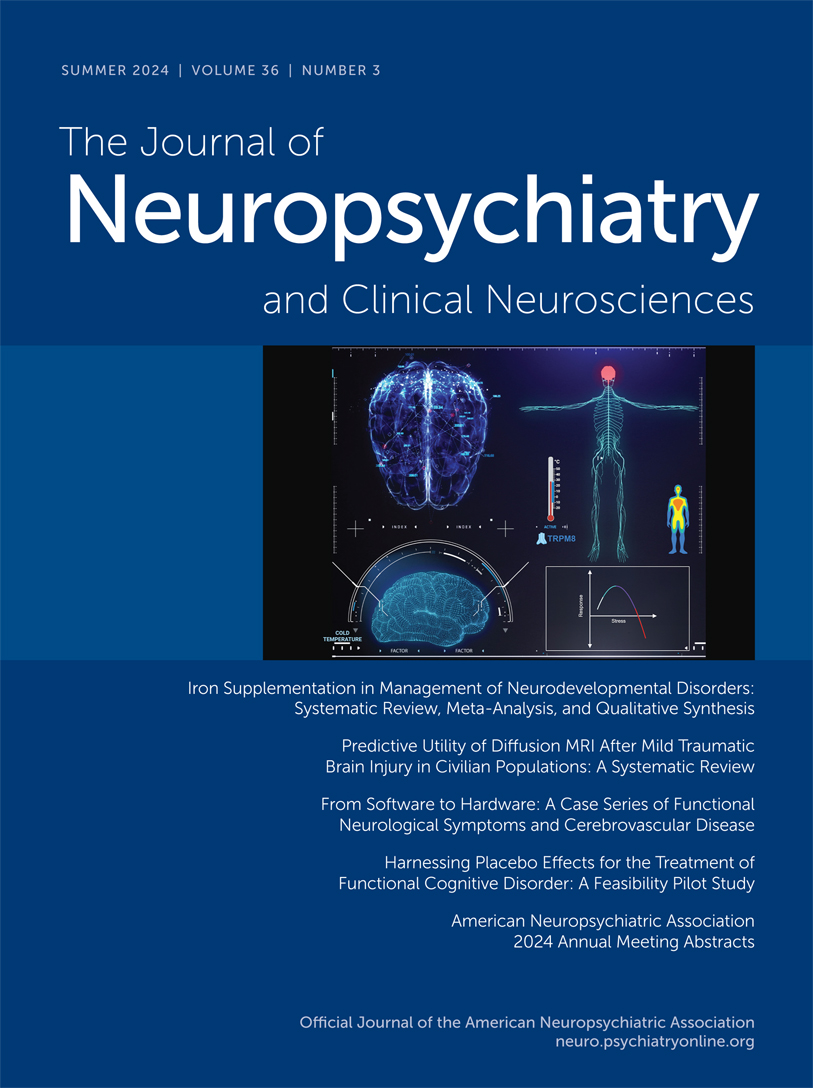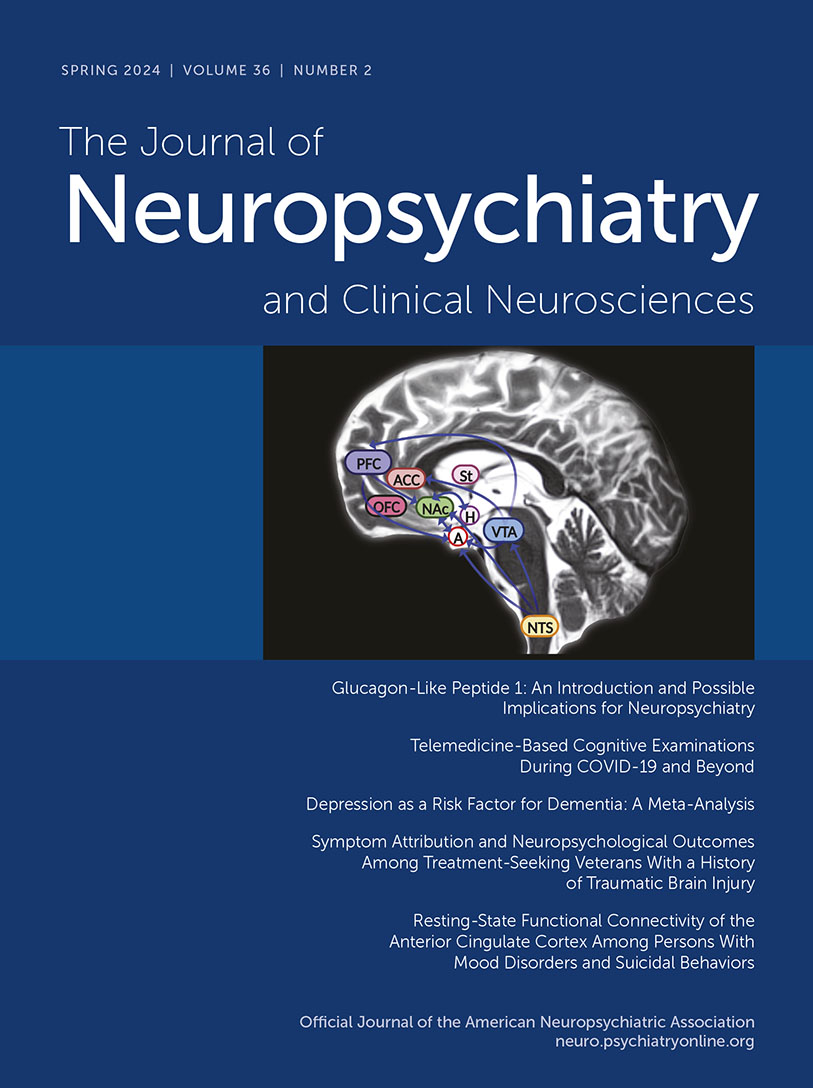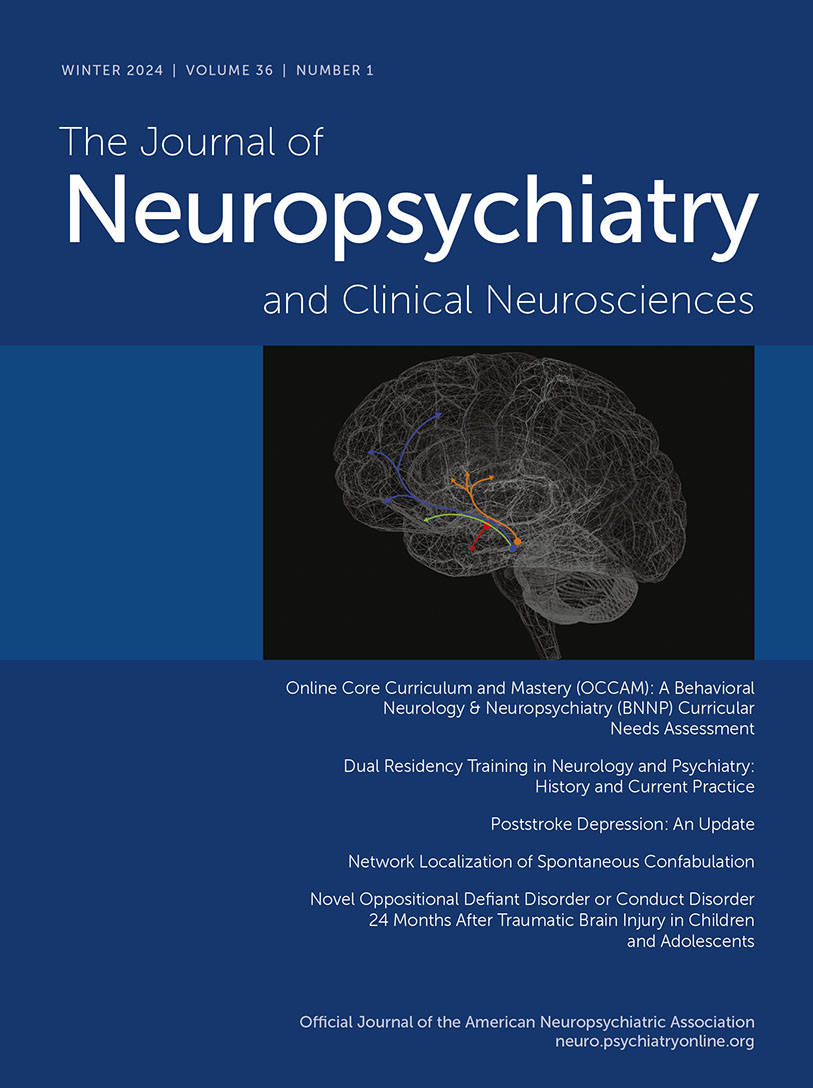The Journal of Neuropsychiatry and Clinical Neurosciences
- Volume 35
- Number 2
- April 2023
Windows to the Brain
Special Articles
Publication date: 29 September 2022
Pages110–120Objective: Fragile X premutation carriers are reported to have increased neuropsychiatric problems, and thus the term fragile X–associated neuropsychiatric disorders (FXAND) has been proposed. Unfortunately, published prevalence estimates of these ...
https://doi.org/10.1176/appi.neuropsych.21110282Frequency and Pathophysiology of Apathy in Huntington Disease: A Systematic Review and Meta-Analysis
Publication date: 10 November 2022
Pages121–132Objective: Apathy is a common behavioral symptom of Huntington disease (HD). This systematic review describes current evidence on the pathophysiology, assessment, and frequency of apathy in HD. Methods: This systematic review was conducted in accordance with ...
https://doi.org/10.1176/appi.neuropsych.20220033Articles
Publication date: 05 December 2022
Pages133–140Objective: This study examined associations between physical activity (PA) and neuropsychiatric symptoms (NPS) in older adults free of dementia. Methods: This cross-sectional study included 3,222 individuals ≥70 years of age (1,655 men; mean±SD age=79.2±5.6; ...
https://doi.org/10.1176/appi.neuropsych.20220068Publication date: 22 August 2022
Pages141–150Objective: To investigate the factors predictive of novel psychiatric disorders in the interval 0–6 months following traumatic brain injury (TBI). Methods: Children ages 5–14 years consecutively hospitalized for mild to severe TBI at five hospitals were ...
https://doi.org/10.1176/appi.neuropsych.21120301Publication date: 10 November 2022
Pages151–157Objective: Interpersonal attachment influences the development and course of disease. Overreliance on insecure attachment strategies may increase risk for poor disease outcomes. This study aimed to investigate largely unexplored relationships between ...
https://doi.org/10.1176/appi.neuropsych.20220073Publication date: 22 August 2022
Pages158–164Objective: The investigators examined predictors of treatment response to anger self-management training (ASMT) among patients with chronic moderate-severe traumatic brain injury (TBI). Methods: A multicenter randomized clinical trial comprising 90 ...
https://doi.org/10.1176/appi.neuropsych.21110279Publication date: 21 September 2022
Pages165–170Objective: Parkinson’s disease (PD) is a neurodegenerative movement disorder that is a result of dopamine depletion in the basal ganglia. Individuals with a PD diagnosis experience motor symptoms (e.g., tremors) and nonmotor symptoms (e.g., cognitive ...
https://doi.org/10.1176/appi.neuropsych.21100257Publication date: 29 September 2022
Pages171–177Objective: Fregoli syndrome is a rare delusion characterized by the belief that familiar people are presenting themselves disguised as others to the affected person. Theories of delusional misidentification have suggested secondary (“organic”) underlying ...
https://doi.org/10.1176/appi.neuropsych.22010011Publication date: 22 August 2022
Pages178–183Objective: Effective screening tools can help providers with treatment decisions, including when to refer patients for neuropsychological evaluations, which are the gold standard for cognitive assessment of neurodegenerative disease. The authors examined ...
https://doi.org/10.1176/appi.neuropsych.21080196Publication date: 21 September 2022
Pages184–191Objective: The appropriateness and clinical utility of neuroimaging in psychiatric populations has been long debated, and the ambiguity of guideline recommendations is well established. Most of the literature is focused on first-episode psychosis. The ...
https://doi.org/10.1176/appi.neuropsych.21110269Clinical and Research Reports
Publication date: 22 August 2022
Pages192–201Objective: Emotional reactivity normally involves a synchronized coordination of subjective experience and facial expression. These aspects of emotional reactivity can be uncoupled by neurological illness and produce adverse consequences for patient and ...
https://doi.org/10.1176/appi.neuropsych.21070186Case Reports
Past Issues
View Issues Archive
Vol. 36 | No. 4

Vol. 36 | No. 3

Vol. 36 | No. 2
